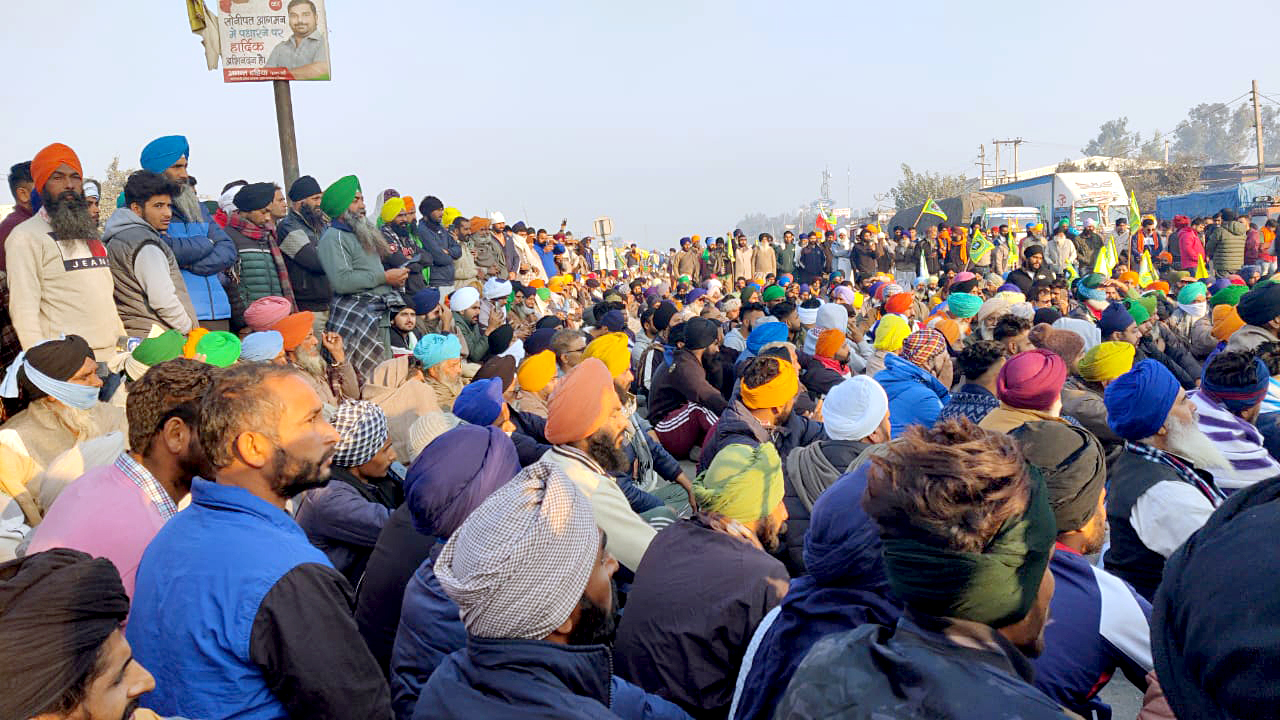Should an organized group that protests and inconveniences millions of people be appeased by the authorities? Protesting farmers have their rights to assembly and protest, but so do millions of non-farmers; they also have the rights to livelihood, movement, etc.
In the wake of the violence on the Republic Day by agitating farmers in the national capital, it is worth scrutinizing the factors that made the stir so powerful and its acceptance among the people so widespread. The exercise is especially needed as the new farm laws the protesters are opposed to are enabling rather than restrictive provisions—freeing farmers from the draconian hoarding law and allowing them to sell their produce to anybody who would pay a higher price.
The first factor is obvious: political expedience. The Opposition saw in the agitation an opportunity to attack the Narendra Modi government, even though it (the Opposition) was exposed as hypocritical over the issue. The Congress manifestos in 2009 and 2014 favoured liberalization in agriculture. The party had said, “Congress will repeal the Agricultural Produce Market Committee’s Act and make trade in agriculture produce-including export and inter-state trade-free from all restrictions.”
Further, “We will establish farmers markets with adequate infrastructure and support in large villages and small towns to enable the farmer to bring his/her produce and freely market the same.”
It suits the grand old party to discard its own belief now, so it does it without any compunctions. Expedience, by the way, also guides the policies of the Bharatiya Janata Party and other parties.
Second, as I wrote in the last article (Myth of exploitation by ‘corporates,’ 23 January), is our inveterate anti-business bias. The conspiracy theories peddled by agitators, pinkish activists, and the Opposition capitalized on this bias. Big corporations are good when we or our family members work with them; they are also good when we do business with them. We flaunt our association with big companies. Here, “we” connotes the state, the political and intellectual classes, and society. But they would exploit and fleece the naïve farmer.
This brings us to the third factor: our attitude towards farmers. We regard them as poor, humble folks who ought to be shielded from the corrupting influences of market. And who else can do that but the state? For the state is the messianic force that has the potential of redeeming not just the tiller but the entire mankind. Or that is what our intellectuals believe.
Hence till the morning of 26 January, widespread impression was that the activists agitating against the new farm laws are righteous rebels protesting against a government insensitive to the concerns of the “poor” farmers. A couple of days later, several protesters had assaulted cops in Delhi and vandalized Red Fort. The locals near the Singhu border, the biggest camp of protesting farmers, were vehement in their demand for eviction, though till a few days earlier, they were fervently supporting the protesters.
Such notions are the result of an outlandish narrative about agriculture and the farmer. This narrative in turn is inspired by movies like Do Bigha Zameen and Mother India, rather than the contemporary rural reality.
Anybody who has seen the sturdy, robust farmers of Punjab, Haryana, and western Uttar Pradesh—the areas where the protest against the new laws are raging—should know that the contemporary reality is completely different. Yet, with eyes wide shut, the media, especially the Hindi TV channels, accepted cinema-created fairy tales as gospel truth.
Fourth, few asked fundamental questions. For instance, why should there be minimum support prices or MSPs for agricultural produce in the first place? There are millions of hawkers, artisans, craftsmen, cobblers, food vendors, etc., in the country. Does government ensure the purchase of their wares at any price?
Fifth, why should there be different laws for different people? The government has agreed to decriminalize stubble burning, thus letting the polluters go unpunished. If a farmer burns his crop, there are no consequences but if he settles in a city, drives a taxi, and his vehicle doesn’t follow the emission norms, he gets punished.
Sixth, should an organized group that protests and inconveniences millions of people be appeased by the authorities? Protesting farmers have their rights to assembly and protest, but so do millions of non-farmers; they also have the rights to livelihood, movement, etc.
Unfortunately, political debate and public discourse in our country are conducted in a climate of opinion which is hostile to such questioning. Therefore, few raise such questions. The denouement: stirs like the present one continue to hurt reforms, hurt the economy, tax administration, occasion violence and vandalism, and inconvenience the man on the street.
Ravi Shanker Kapoor is a freelance journalist.

